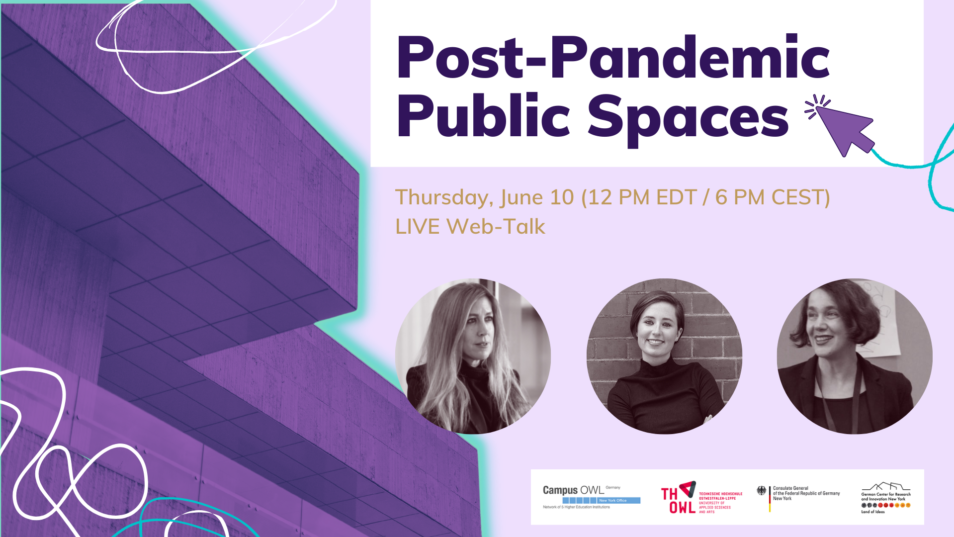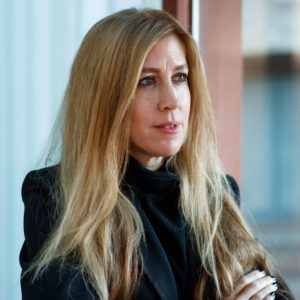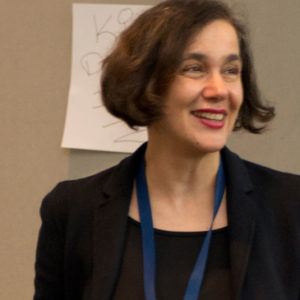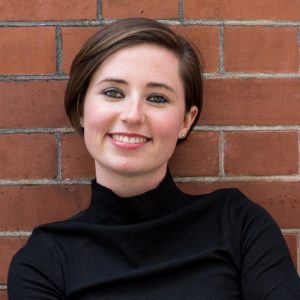Post-Pandemic Public Spaces

COVID-19 and the many measures to control its spread have fundamentally changed the way urban residents think of their cities and public spaces. Streets and squares once designated for cars now belong to pedestrians and restaurants; access to nature, open spaces and sports and leisure facilities have emerged as a vital need. Meanwhile digital interaction and socialization have rapidly accelerated, fueled by video calls, gaming, streaming and e-commerce.
The pandemic has highlighted the importance of our local environment and accelerated emerging trends towards a healthier, more inclusive and active city, essential to inhabitants’ physical and psychological well-being.
Join us Thursday, June 10 at 12 PM EDT for a conversation on future design, use and perceptions of public space.
Event Recording

To play the video, click the thumbnail. Once activated data will be transmitted to the respective provider. Watch on YouTube
The crisis induced by the pandemic has quickened and fueled several diverging trends:
Digitalization is speeding up, with a plethora of services, products, and experiences shifting to the virtual realm. Social interactions are increasingly relying on, developing, and unfolding in the digital sphere as well, at once shaping and being shaped by digitalization.
More folks are using parks and public spaces such as streets and squares for walks, bike-rides, play and socializing, as well as cultural activities. On the other hand, we are witnessing urban flights as urban population move towards suburban homes and living, with private gardens or in the comfort and safety of purposeful, intentional communities in co-housing or co-living arrangements.
Even as globalization progresses, the future looks more and more locally bound and organized, with more energy and resources pouring in the revitalization of neighborhood- and city-based social, cultural, and economic ties. Any notion of the future of public spaces must account for both digital public space and physical urban spaces, for their blurring, mutual influence, and interaction.
Public urban space and its potential for accidental, fortuitous contacts allows us to meet each other and to learn from one another, breaking through the “bubbles” and echo-chambers of highly personalized, tailormade digital existences. Truly inclusive public spaces contrast to encroaching gentrification and have the capacity to welcome people with radically different backgrounds, offering the chance to grow and cherish a sense of belonging.
Explore the changes in public (physical and digital) spaces that will last in the post-COVID19 times and how can we influence developments together with us.
About our Experts:

Harriet Harriss (RIBA, PFHEA, Ph.D.) is a qualified architect and Dean of the Pratt School of Architecture in Brooklyn, New York. Her teaching, research, and writing focus upon pioneering new pedagogic models for design education, as captured in Radical Pedagogies: Architectural Education & the British Tradition, and for widening participation in architecture to ensure it remains as diverse as the society it seeks to serve, a subject she interrogates in her book, A Gendered Profession. Dean Harriss is also recognized as an advocate for diversity and inclusion within design education and was nominated by Dezeen as a champion for women in architecture and design in 2019. Her latest book Architects After Architecture (2020), considers the multi-sector impact of an architectural qualification.Dr. Harriet Harriss, Pratt School of Architecture

Prof. Elizabeth Sikiaridi, TH OWL (OWL University of Applied Sciences and Arts)Elizabeth Sikiaridi has lectured since 1997 on design in the urban landscape at the University Duisburg-Essen and at the OWL University of Applied Sciences and Arts. Elizabeth is founder of Berlin-based Hybrid Space Lab (www.hybridspacelab.net), a Think Tank and Design Lab for architecture, urbanism, design and digital culture, focusing on cultural innovation. Elizabeth was born in London and grew up in Athens. She studied architecture and urbanism at the École d’Architecture de Belleville in Paris and at the Technical University of Darmstadt (graduated with honours). She worked at the architectural office Behnisch & Partner in Stuttgart on the extension of the German Federal Bank in Frankfurt and on the German Federal Parliament in Bonn and as an Assistant Professor at the Technical University of Berlin.

Mona Sloane is a sociologist working on inequality in the context of AI design and policy. She frequently publishes and speaks about AI, ethics, equitability and policy in a global context. Mona is a Fellow with NYU’s Institute for Public Knowledge (IPK), where she convenes the Co-Opting AI series and co-curates the The Shift series. She also is a Senior Research Scientist at the NYU Center for Responsible AI, an Adjunct Professor at NYU’s Tandon School of Engineering, and is part of the inaugural cohort of the Future Imagination Collaboratory (FIC) Fellows at NYU’s Tisch School of the Arts. Mona is the technology editor of Public Books, and is a fellow at The GovLab. Her most recent project is Terra Incognita: Mapping NYC’s New Digital Public Spaces in the COVID-19 Outbreak which she leads as principal investigator. Mona currently also serves as principal investigator of the Procurement Roundtables project, a collaboration with Dr. Rumman Chowdhury (Director of Machine Learning Ethics, Transparency & Accountability at Twitter, Founder of Parity), and John C. Havens (IEEE Standards Association) that is focused on innovating AI procurement to center equity and justice. Mona also works with Emmy Award-winning journalist and NYU journalism professor Hilke Schellmann on hiring algorithms, auditing, and new tools for investigative journalism and research on AI. With Dr. Matt Statler (NYU Stern), Mona is also leading the Public Interest Technology Convention and Career Fair project that looks to bring together students and organizations building up the public interest technology space. Mona is also affiliated with the Tübingen AI Center in Germany where she leads a 3-year federally funded research project on the operationalization of ethics in German AI startups. She has written for The Guardian, MIT Technology Review, Frankfurter Allgemeine Zeitung, OneZero Medium, and other outlets. Mona holds a PhD from the London School of Economics and Political Science and has completed fellowships at the University of California, Berkeley, and at the University of Cape Town.Dr. Mona Sloane, NYU's Institute for Public Knowledge
With Welcome Remarks by:
Yasemin Pamuk, Head of Cultural Affairs and Science, German Consulate General New York
Dr. Katja Simons, Executive Director, Campus OWL New York Office
Moderated by:
Dr. Kathrin DiPaola, Program Manager, DWIH New York
The web-talk and Q&A will be held online on Webex Meetings. The event is free, but registration is required; a special access link to the meeting will be sent out the morning of the event. For help on how to join a Webex Meeting, see our step-by-step guide.

Event Information
June 10, 2021, 12:00 PM to 1:00 PM
Webex
Organizer(s): Campus OWL, TH OWL, German Center for Research and Innovation (DWIH) New York, German Consulate General New York
